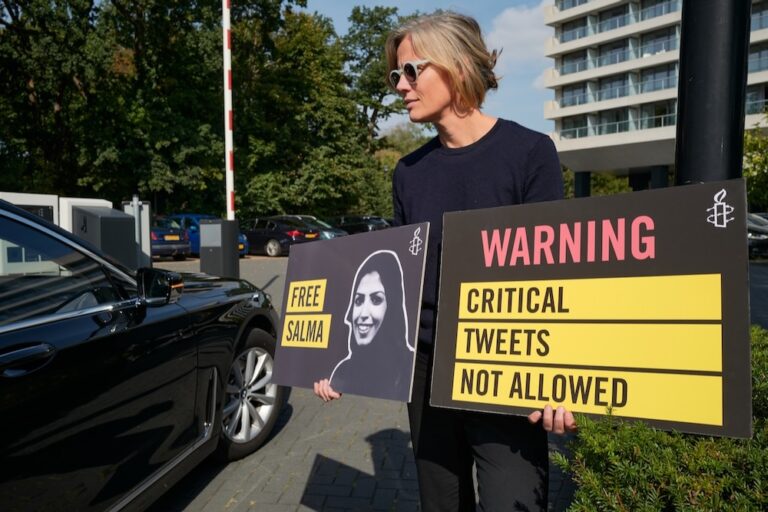Muhammad Al-Tunisi was dismissed after publishing a report about the use of a stimulant-containing plant in Jazan.
(ANHRI/IFEX) – Cairo, 7 December, 2011 – ANHRI is deeply disturbed over the dismissal of Muhammad Al-Tunisi, editor-in-chief of the Saudi newspaper “Okaz”, for publishing an investigative report about high consumption of the Khat drug plant in Jazan, located in southern Saudi Arabia.
The report, written by Sami Al-Harbi, is a field study on the consumption of the Khat drug plant in Jazan. It was reported that 70% of Jazan’s residents abuse the Khat plant, which affects, as described in the report, the cells of the human body and leads to sexual deviation. Jazan’s residents took offense to the report and young men led a boycott against the newspaper, calling for it to be banned. Al-Tunisi posted a personal apology on Twitter, and the newspaper published his apology along with a clarification about the content of the report that relied on the findings of an independent researcher. However, that did not suffice for the newspaper’s administrators, who decided to dismiss Al-Tunisi.
“The right of reply and correction is guaranteed for all, essentially for the correction of journalistic flaws by disseminating different views, without compromising freedom of expression. The report published by ‘Okaz’ represents an analysis and conclusions based on statistical research. It was published in the words of the researcher, and aimed to address a social problem. It was not meant to offend the people of Jazan. Restrictions on the freedom of scientific research and the right to exchange information as evidenced by the dismissal of the editor-in-chief are unnecessary,” said ANHRI.
“It would have been more suitable for the newspapers administrators to invite the residents of Jazan to a discussion, and publish their response in a space equivalent to that of the report. Instead, the newspaper succumbed to pressure and eventually dismissed Al-Tunisi. Incidents such as this will lead to more self-censorship among journalists, editors-in-chief and newspaper administrations,” added ANHRI.


